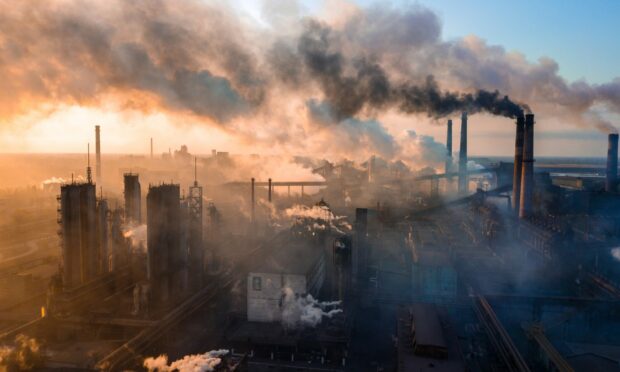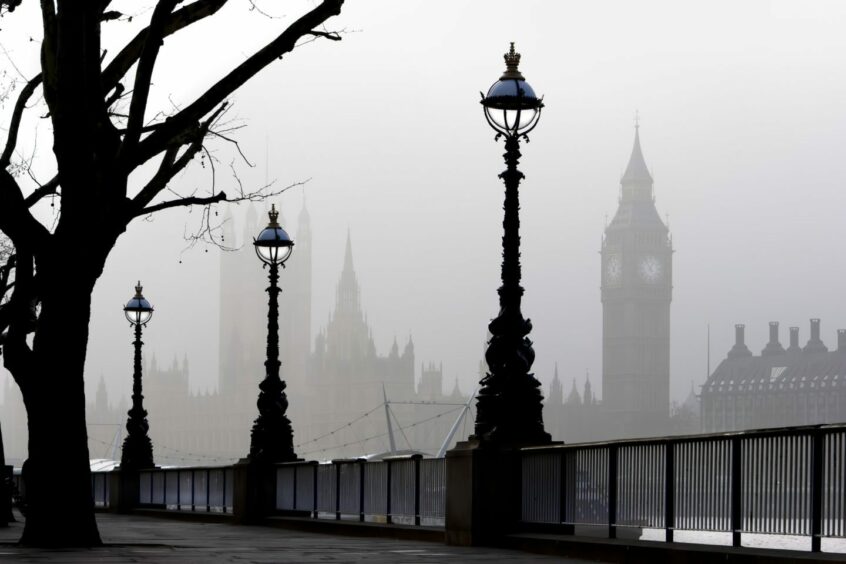Human activity is leading to rapid changes to the global climate.
Extreme weather is becoming the new normal – everything from destructive wildfires to deadly heatwaves and droughts.
Environmental law organisation Earthjustice says: “Over the past century, massive increases in carbon dioxide, methane and other greenhouse-gas emissions have caused the temperature on our planet to rise.
“That spike in temperatures is fuelling climate disasters that will only get worse unless we take action. Experts warn that we are running out of time to dramatically cut pollution to avoid climate catastrophe.”
The journey to sustainability is said to date back to the 1800s and the start of the industrial revolution.
Coal was being burnt freely with no filters, and the air quality in industrial cities in Europe and America suffered badly.
Unconstrained by any environmental laws, the industry continued to generate more air and water pollution each year until, by the middle of the 20th Century, levels of pollution were jaw-dropping.
But that situation has changed in recent years, and the activities of businesses around the world and their impact on the planet are being scrutinised like never before.
Firms are increasingly having to pay more attention to public views or risk losing business.
One study found that 66% of consumers planned to make more sustainable or ethical purchases over the next six months. And 74% of customers said ethical corporate practices and values were an important reason to choose a brand.
Journey to net-zero
All around Scotland, firms are taking steps to transition towards net-zero, however, there is more work to be done for businesses to have greener processes and products.
Scottish Enterprise (SE) is supporting companies to reduce emissions, create net-zero plans and target sustainable commodities that, in turn, create a carbon net-zero economy.
According to the Office for National Statistics, only 23% of firms with 250-plus employees have a climate-change strategy in place.
And figures from the British Business Bank show only 9% of small and medium-sized enterprises in the UK are measuring their carbon footprint.
There are significant benefits from embracing sustainable business practices.”
Ian Carstairs, Scottish Enterprise.
SE regularly surveys companies it supports. It found businesses are choosing to become greener due to demand from consumers, as well as being able to attract staff and government support.
Ian Carstairs, sustainability team leader at the economic development agency, said: “At the most basic level, companies must comply with environmental legislation, and failure to do so means businesses run the risk of enforcement action and reputational damage.
“There are significant benefits from embracing sustainable business practices – from employee attraction and retention to winning new customers, as well as reducing costs through efficiency savings and building resilience against fluctuating energy prices.
‘Becoming more sustainable just makes business sense’
“Customers are also increasingly looking to brands to embody their own values – and that often includes those brands who demonstrate their products and operations are delivered in an environmentally-responsible way.
“For today’s economy and the sake of a future greener landscape, becoming more sustainable just makes business sense.
“Those who don’t embrace the transition risk being left behind.”
SE recently launched a new online tool for companies to analyse the impact of their operations on the environment to help them set net-zero targets, as well as identify opportunities to innovate or adapt.
The tool also looks at leadership and staff engagement on climate-change issues.
SE has supported a range of north-east projects with a net-zero focus. These range from hydrogen buses to the Energy Transition Zone, Global Underwater Hub, North East Adventure Tourism and Port of Aberdeen expansion, as well as P&J Live – the most-sustainable venue in the UK – which is powered by food and garden waste.
Mr Carstairs added: “Aberdeen and the north-east is very ambitious in its drive to net-zero.
“We’ve got stretching targets right across Scotland, and a strong support landscape to help businesses both address their own performance and develop the new, green technologies that will drive a just transition.
“However, we still have a long way to go and there are some businesses which are still to take their first steps on their net-zero journey.
“That is why Scottish Enterprise has developed a suite of support for businesses to decarbonise products, processes and services, as well as funding for green jobs and targeted initiatives.”





Conversation